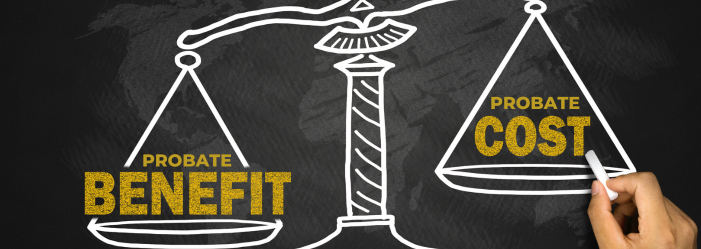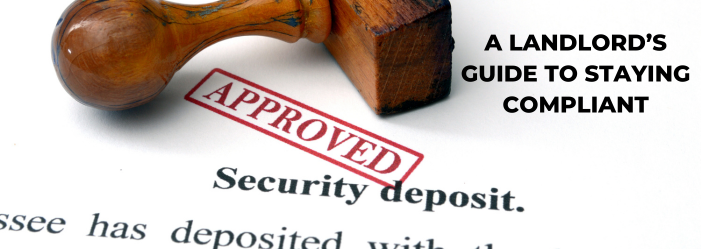Understanding the Costs of Probate: Who Pays and How to Plan
Need A Florida Lawyer? Fill Out The Form Below
Breaking Down Probate Costs: What to Expect and How to Save

Understanding the Costs of Probate: Who Pays and How to Plan
Probate is the court-supervised process of distributing a deceased person’s estate, which can be essential for settling debts and ensuring assets are transferred according to the law. However, the costs of probate can be significant, and understanding these expenses, who pays them, and what might increase the fees can help families make informed decisions. This article breaks down the costs involved, explains how probate fees are covered, and offers insights into minimizing expenses.
Types of Probate and Their Associated Costs
Probate costs can vary significantly based on the type of administration required. In Florida, the primary types of probate are
Summary Administration and
Formal Administration:
- Summary Administration: This is a simplified probate process available for estates valued under $75,000 or if the decedent has been deceased for over two years. It is typically faster and less costly due to fewer legal requirements.
- Attorney Fees: Typically range from $2,500 to $4,500, depending on the estate’s complexity.
- Court Filing Fees: Generally around $346.
- Total Costs: Generally between $2,500 and $5,000.
- Formal Administration: This is required for larger estates and involves more extensive legal oversight.
- Attorney Fees: Often calculated as a percentage of the estate’s value, usually around 3%, with fees increasing for larger estates.
- Court Filing Fees and Other Costs: Vary by county and the estate’s size, generally higher than those in Summary Administration.
- Total Costs: Often ranges from $5,000 to well over $10,000 for larger or complex estates.
Key Difference: Summary Administration costs less due to fewer steps and no personal representative, while Formal Administration involves more court supervision and higher attorney fees.
Who Pays for Probate?
Probate costs are generally paid from the estate’s assets before any distributions to beneficiaries. Here’s how these costs are typically handled:
- Estate Assets: Attorney fees, court costs, and other administrative expenses are deducted directly from the estate. If the estate lacks sufficient liquid assets, some beneficiaries may advance funds to cover costs and be reimbursed later.
- Attorney Fees: In Florida, probate attorneys are paid from the estate. The state sets guidelines for reasonable fees based on estate value, though fees may vary for larger or more complex cases.
- Personal Representative Fees: The executor or personal representative (appointed to oversee estate distribution) is also entitled to reasonable compensation, which is paid from the estate.
Exceptions to Estate-Paid Costs
In most cases, the estate covers probate expenses. However, exceptions may arise:
- Disputed Claims: If a beneficiary or party contests the will, they may need to pay their own legal fees.
- Lack of Liquidity: If the estate doesn’t have enough readily available funds, beneficiaries may have to cover initial costs, later reimbursed by the estate.
Extraordinary Services and Additional Costs
In addition to standard probate costs,
extraordinary services may add to the expenses. These services are necessary when additional legal work is required, often billed separately and typically at an hourly rate. Examples include:
- Will Contests and Beneficiary Disputes: Any disputes, such as questioning the validity of the will or contesting asset distribution, require additional legal work and court time, which can be costly.
- Complex Tax Issues: Estates with complex tax situations, such as significant property or business interests, may require specialized legal assistance to ensure compliance with tax regulations.
- Real Estate and Business Transactions: Handling the sale or management of estate-owned properties or businesses may require added legal work, which can increase fees.
- Out-of-State or International Assets: Administering assets outside Florida or the U.S. involves separate procedures, often raising costs.
These extraordinary services extend the probate timeline, add legal fees, and can significantly reduce the estate’s value.
Variables Affecting Probate Cost
Probate costs are influenced by several factors beyond the estate’s size, including:
- Estate Complexity: Estates with diverse assets (e.g., real estate, business holdings, or investments) require more legal oversight, raising costs.
- Disputes Among Beneficiaries: Family disagreements or contested wills prolong the process, increasing legal fees.
- Executor Compensation: Executors can receive reasonable compensation for their work, which comes from the estate and increases costs.
- Location: Probate costs vary by jurisdiction. In some areas, higher court fees and additional filing requirements may affect the overall expense.
Reducing Probate Costs
There are ways to reduce probate costs, such as
planning ahead to minimize the estate’s complexity and potential disputes. Strategies like creating a living trust or naming beneficiaries for certain assets can help bypass probate altogether, reducing associated expenses.
How Katz & Associates Can Help
At Katz & Associates, we guide families through the probate process with transparency and care. Our experienced team helps clarify each step, manage costs, and ensure a smooth, efficient transfer of assets. We work closely with clients to explore cost-effective options, including alternative strategies for minimizing probate expenses. Contact us today to learn how we can assist with your probate needs and provide the peace of mind your family deserves.
Powered and Designed by Boost (boostvse.com)













